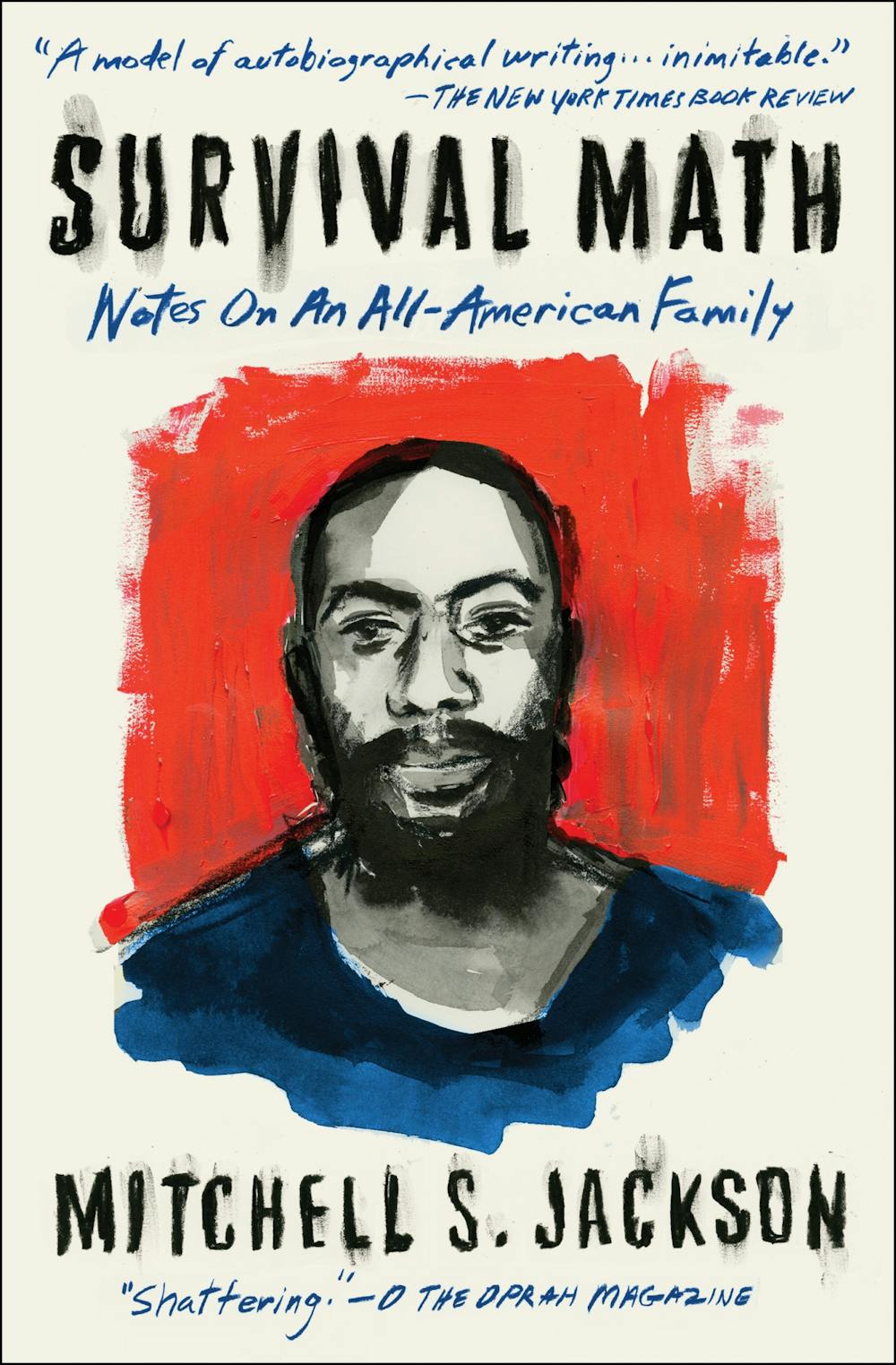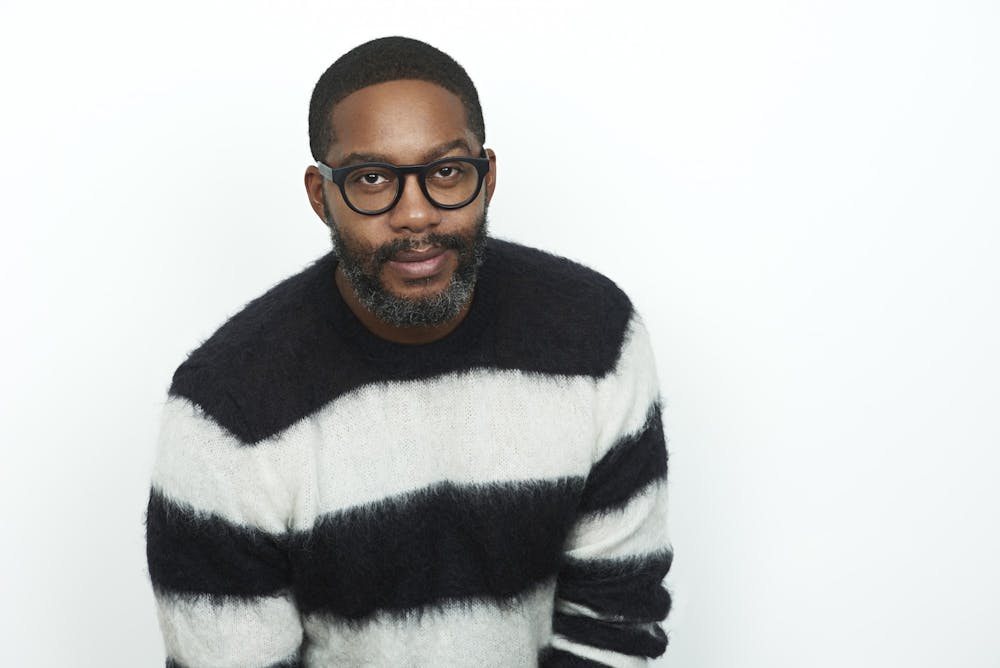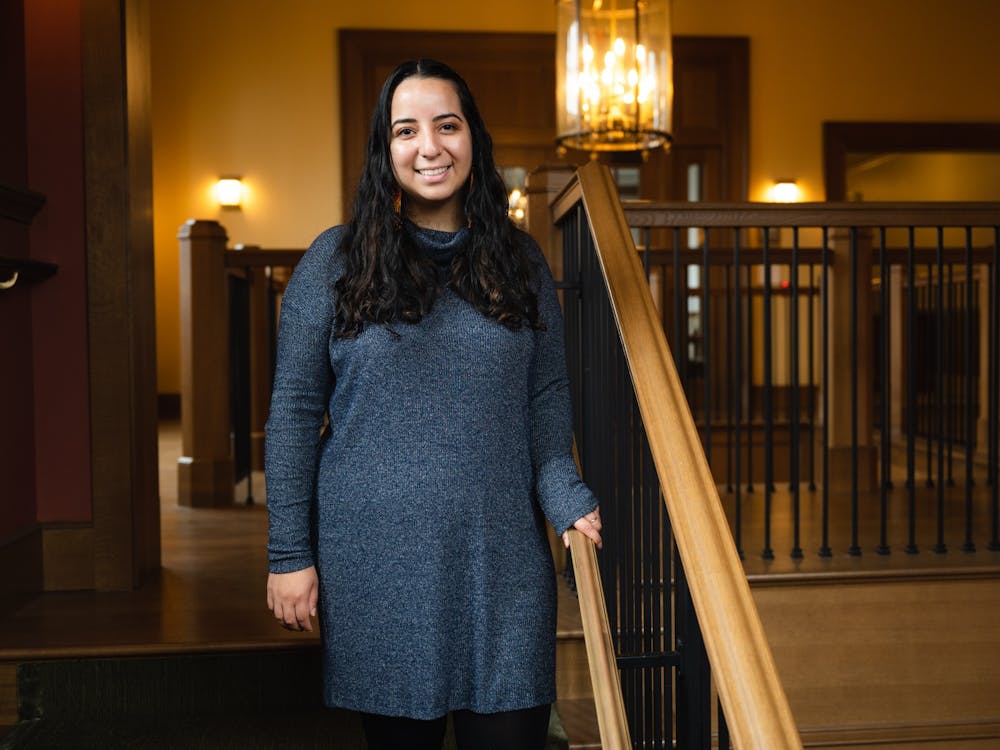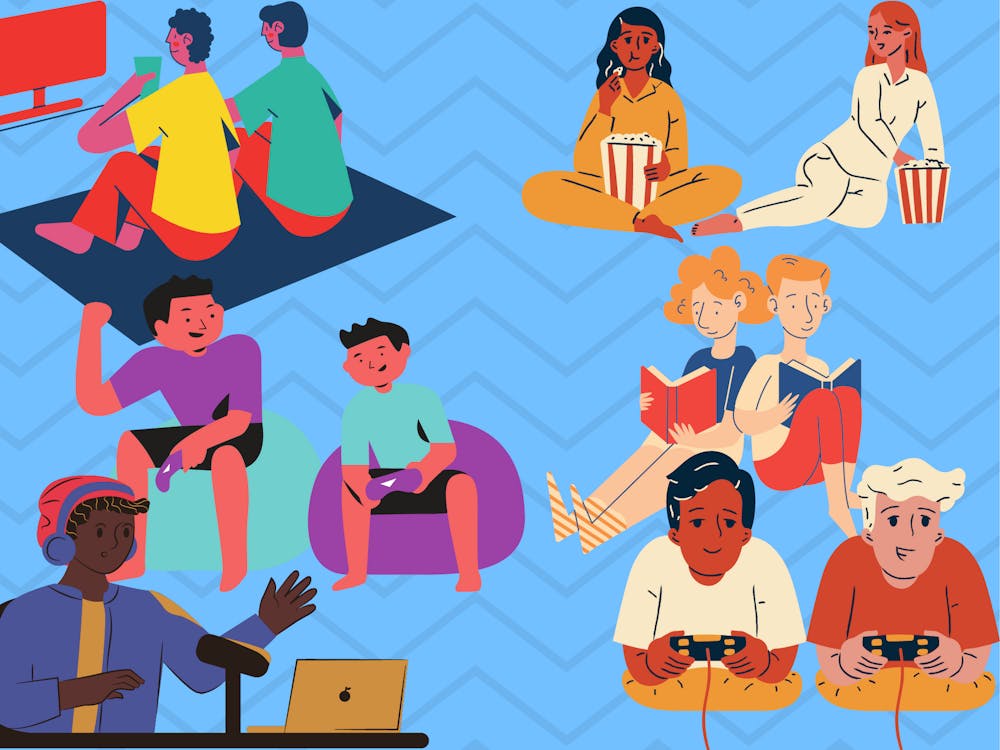Pulitzer Prize winning author Mitchell Jackson will be speaking in the Buckley Center Auditorium as a Schoenfeldt Distinguished Writer this Wednesday, Nov. 10, at 7:30 p.m. The talk is titled “Prison to the Pen: Mitchell S. Jackson’s Extraordinary Journey.”
Pre-registration for the event is required. It will also be live streamed.
His profile on Ahmaud Arbery, “Twelve Minutes and a Life,” won the 2021 Pulitzer Prize and National Magazine Award for Feature Writing. Jackson has also written two novels, The Residue Years and Survival Math.
Now a professor at Arizona State University, Jackson discussed in a phone interview with The Beacon what it’s like coming back to Portland, the role Portland plays in his writings, his roots as a writer and previews what he will talk about on Wednesday.
The Beacon: Now that you're living in Arizona and you've been away from Portland for about 20 years, what is it like when you come back to Portland? Does it still feel like home given how much the city's changed over that time span?
Jackson: Yeah, absolutely. It feels like home. I come back pretty often now, I still come back recently once a month, but certainly a few times a year. While it feels like home, it doesn't escape me when I ride through my old neighborhood that it doesn't physically look the same anymore and that the identity of the people who live there is different than when I was young in my teenage years and early 20s.
The Beacon: Portland seems like a through-line in a lot of your work, how did growing up here impact you as a writer and your writing specifically?

Survival Math takes us inside the drug-ravaged neighborhood and struggling family of Jacksons youth.
Photo Courtesy of Mitchell Jackson
Jackson: I only really write about Portland, and even when I am given an assignment to write about something else, for example, the Ahmaud Arbery story, I always find a way to write about home because that's really what I'm committed to. I didn't know a lot about origins and history, and certainly not its racial history when I was young and once I found that out it started to make a lot of the things that happen in my youth, it started to help frame it for me and also think that writing about home is I care about those people, and also that there's a macrocosm in the microcosm of Portland in even particularly Northeast Portland or the old Northeast Portland. I'm committed to that and it's a lifelong project writing about home, which for me is particularly Northeast Portland but Portland at large and then in Oregon and I think, you know, so far it hasn't failed me, there's always something to say about the people in the place that I come from.
The Beacon: What did you mean when you said a “macrocosm in the microcosm?”
Jackson: When I think about Portland, there's racism, there's gentrification, there's different cultures getting along there. All the issues that I am concerned with, they're there and I think they are a stand in for the issues at large. So when we think about the Black Lives Matter movement, you don't really think about origin, but we've had our own cases, we have our own kind of racial history, we have our own fraught relationship with police and not so fraught in places. So I think all of those things, they're there. If you ask anybody else, they wouldn't probably point towards Portland as a place to focus on. I just think that whatever issue it is that I care about nationally, internationally, globally, that it's a seed of it in me writing about home.
The Beacon: I read something that said when you were younger, before the school year started, you would go to the library and “refresh yourself.” It seems like you've always enjoyed learning, was there a specific moment where you really fell in love with writing?
Jackson: No, there was not a specific moment. Going to refresh myself before school, I wanted to be a good student. I've always been curious, though even then, I was never reading for pleasure, I was only going to the library to prepare for whatever kind of rigor the teachers had for us. And I would say that my relationship to reading has remained that and that my relationship to writing came out of what felt like necessity, the necessity to make sense of my experience. So, I do obtain pleasure for reading and I do obtain pleasure from writing, but it didn't ever feel natural. It was like something that I willed. Something that I certainly enjoy, but it wasn't something that I would have done. It wouldn't have been the first thing that I did. So I feel like I came to reading through writing and I came to writing from, really, trauma.
The Beacon: What was the writing process like for “12 minutes and a life” and what emotions did writing it bring out in you?
Jackson: Well, the first reaction was of anger. When I heard about what had happened I was certainly angry. And then writing the piece, it made me thankful, is one word, because I was thankful for the people in Ahmaud's life who were sharing aspects of who he was with me. I was thankful for his sister, and his best friend Akeem and his coach Jason and his ex-girlfriend and his other friend, all of whom did not have to talk to me, so I was really thankful for that. And then the more that I got to know him, or felt like I was getting to know him and about who he was as a person, the closer I felt to him, so I started to recognize some of my 22, 23, 24 year old self in Ahmaud, so it brought me closer to them than I thought that I would be and then also, I got a chance to write about home, in writing about the history of jogging and how it came out of Eugene, Oregon, so all of those things are important to me. I love writing about Black men. I think talking about Black men and masculinity and our relationship to authority in America and the places we grow up, I think is really interesting and that Ahmaud touched on and what happened to him touched on a lot of the things that I am concerned with.
The Beacon: The title of your talk is “Prison to the Pen: Mitchell S. Jackson’s Extraordinary Journey,” can you preview for me what you're going to talk about?
Jackson: It is just that, it’s that journey. It wasn’t literary, I wasn't reading for pleasure, but I had these influences that I think later bore fruit. I wasn't thinking of them that way while I was living, but later on I recognized how instrumental and crucial they were to my life as a writer. And then kind of working through these moments, like for example, having Residue come out and experiencing some successes with it, but then also these disappointments and the same thing with Survival Math, and then getting to a place now where I have experienced a little more success, but now I'm also at a point where it's like, okay, well, what do you do next and how do you make a life for yourself? None of this is an accident, but it also feels very uncommon the way that this career or calling or craft has kind of rolled out for me. So yeah, just really reflecting on the journey is important. And then my connection to U of P is probably deeper than a lot of people know, because I never talked about it, but I want to reflect on that as well.
The Beacon: You went to Jefferson High School, right? That's like five minutes away.

The Residue Years, Highlights Jacksons experience growing up Black in the whitest city in American, Portland OR, in the 90's.
Photo Courtesy of Mitchell Jackson
Jackson: I have friends who went to U of P. I spent a lot of time on campus when I was in my teens and 20s. I know the ex-basketball coaches so this is more than just me going to school down the street.
The Beacon: You were talking about influences earlier, and I read somewhere, and this made me laugh, that John Edgar Wideman rejected your request to mentor him and you wrote a story about it for his workshop class. I was wondering if you could tell that story to me because I thought it was really funny.
Jackson: So I had taken this workshop at NYU, you had to pay for it. I remember it was $4,500, which is still a remarkable amount of money to me. And I didn't have the money to do it. I talked to the person who was running it to let me in and let me work it off. Anyway, I took it because I had read John Edgar Wideman in my MFA program and I felt a deep connection to his writerly voice and to the experience that he was writing about, so I was like, 'Oh, yeah, this guy, I'm gonna meet him and he's gonna take a liking to me and then he's gonna want to be my mentor and it'll be great.' And after the first couple of days, I met with him and I told him that, 'hey, I didn't have enough money to get in here and I was just hoping that we can establish a relationship' and he was like, 'Oh, no, that's not how this works, man. I got my own students that I teach during the year and I go to Paris every year' and he just basically shattered my dreams. The next day, I came back to the workshop, and we had to write a short story and I wrote a short story about an older writer who refuses to mentor a young writer and then the day after that, we had to read them, our workshop had to read it. And because he was my workshop leader, he had to introduce all of the people in the workshop. So he got up and introduced me, 'Hey, this is Mitch. He's going to read a story' and then he sat down in the front row, and listened to us read. And I got up there and I read that story and I'm pretty sure I named my character, John, like, I'm pretty sure I named the old writer John. There was a line in there that said, 'What are you going to do, John? Are you going to take the shot? Are you going to pass the rock? You going to take the shot or pass the rock?' which is my analogy for whether or not he was going to help me and I remember just looking at him. At that point, I was like, well, I don’t have anything to lose. He already said he's not going to mentor me, so I'm just gonna let him know how I feel about this. But later on, he pulled me to the side and offered to keep in contact with me and we've been in contact now for almost 20 years. I actually went to one of his events last week virtually and we got plans to have a little chat in a little while. And he's really held to his word and I hadn't thought about it, but it really has been 20 years now.
The Beacon: Do you feel like he's been really influential for you?
Jackson: Yes, but not in the kind of hands on mentorship that one would expect is more in modeling. He's still writing at a really high level, he's still publishing every other year, he's still writing short stories, he's still a brilliant thinker and speaker so I just watch and every once in a while, probably once a year, maybe once every two years, I will be in the same place and we'll get dinner and then I get to just listen to him talk and at this point, I just am quiet, it's wisdom. And how many people get a chance to be around genius that actually cares about you and your career. I feel really fortunate. He doesn't necessarily give me a lot of advice, though one good thing about him is whenever I think I've done something that's worthy of merit, he'll always give me the critique on and just like yeah, you know, 'the Arbery piece was good, but I think you could have did this and that and this and that,' and it always helps me kind of stay reflective.
The Beacon: Last question, and easily the most important one, I'll ask you: favorite Portland restaurant?
Jackson: Every time, I go to Cadillac Cafe on Broadway and get their brunch. I can't remember a time I've come home and have not gone to Cadillac Cafe, which is not a fancy restaurant at all, but I love their breakfast.
Jackson will be speaking in the Buckley Center Auditorium on Wednesday, Nov. 10 at 7:30 p.m. Advanced registration is required for all attendees. The event will also be livestreamed.
In-person attendees are required to show proof of COVID-19 vaccination at the door or show documentation of a negative PCR test taken within 72 hours of the event to attend. Masks are required in indoor spaces regardless of vaccination status.
William Seekamp is the News and Managing Editor of The Beacon. He can be reached at Seekamp22@up.edu








